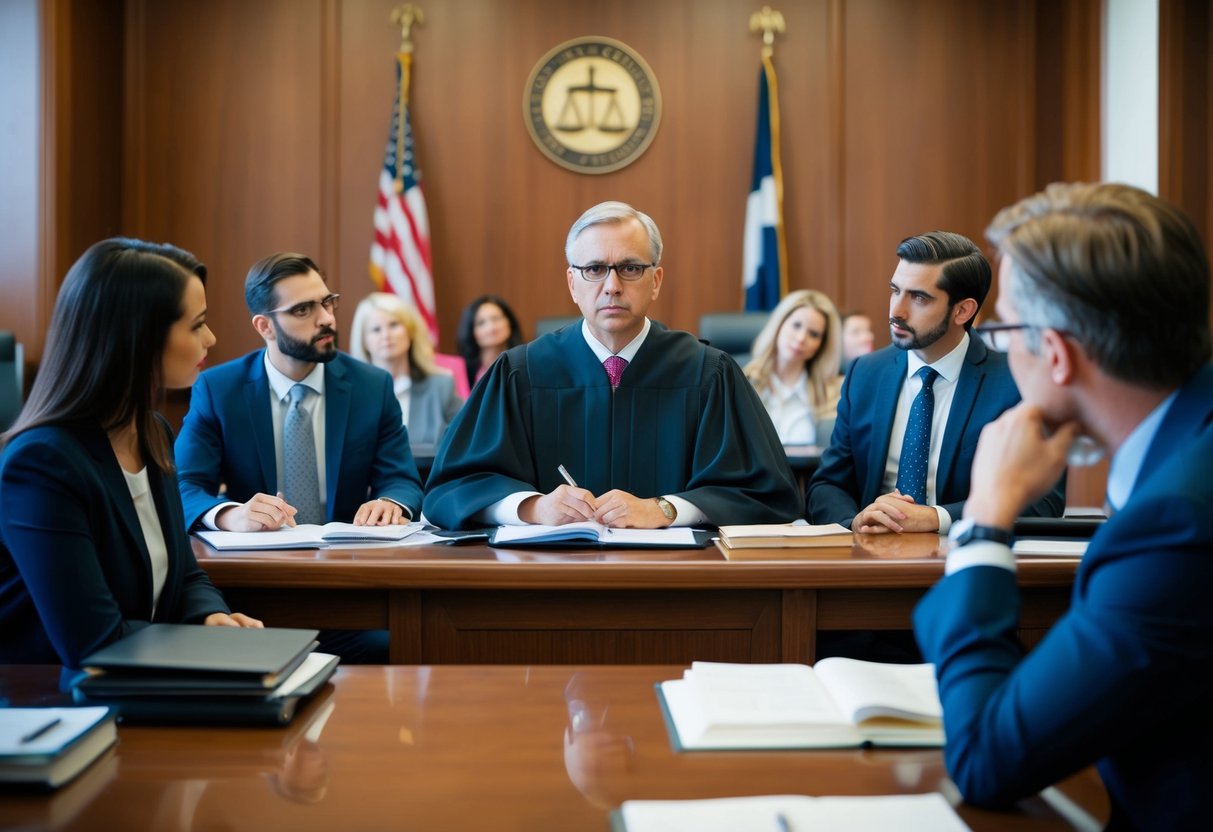Understanding the Legal Implications of Felony Charges
Felony charges bring severe consequences that differ significantly from misdemeanors. This section covers how the type of charge affects the legal process, penalties, and long-term impacts on life.
Differentiating Between Felony and Misdemeanor Charges
Felonies and misdemeanors differ mainly in severity and penalties. Felony charges are serious offenses like murder, rape, and grand theft. These often lead to long prison sentences, hefty fines, or both. Misdemeanors include less severe crimes such as petty theft or vandalism, usually resulting in shorter jail time or fines.
The classification affects the criminal court process and sentencing. Felony charges have stricter legal proceedings and more severe outcomes. Misdemeanors typically involve simpler processes and lighter punishments.
The Criminal Court Process and Sentencing
Felony charges initiate a complex and lengthy court process. After an arrest, the accused usually has a preliminary hearing, followed by an indictment if there’s enough evidence. Trials can take months or even years. Defense attorneys play a crucial role in navigating these proceedings.
Sentencing for felonies is also severe. Convictions can lead to incarceration, probation, and parole. Other penalties may include large fines and restitution to victims. The jurisdiction and the specific crime influence the length and type of sentences.
Long-Term Legal Consequences of Convictions
The long-term effects of felony convictions are far-reaching. A criminal conviction can hinder one’s ability to find employment, housing, or educational opportunities. Felony convictions often result in the loss of civil rights, such as voting and firearm possession.
Some felonies, like sex crimes or violent crimes, have stricter post-sentence conditions. Expungement and record sealing can help, but they are not always available. Legal remedies such as pardons or certificates of rehabilitation also exist but are difficult to obtain. The impact on one’s criminal history is lasting, emphasizing the importance of understanding these implications fully.
Impact on Personal and Professional Life
Felony charges can significantly affect various aspects of life. Key areas impacted include employment opportunities, housing, education, and personal relationships.
Challenges in Employment and Career Advancement
A felony record often makes finding a job difficult. Many employers conduct background checks, which reveal criminal records. This can lead to job rejection despite qualifications. In career advancement, obstacles arise when seeking professional licenses, as many fields bar felons from obtaining them. Employment challenges also include workplace discrimination, where employees with a past felony might face bias and unequal treatment.
Access to Housing, Education, and Financial Services
Felony charges limit access to housing, as landlords frequently perform background checks and might deny applications from those with a criminal history. Educational opportunities decrease too; several education institutions and financial aid programs exclude individuals with felonies, impacting their ability to earn degrees or certifications. Financial services, including loans and credit, become harder to obtain due to decreased creditworthiness and potential distrust from financial institutions.
Influence on Personal Relationships and Social Standing
Felony charges heavily impact personal relationships and social standing. Relationships with family and friends might strain due to the stigma attached to a criminal record. Social stigma can also lead to isolation, making rehabilitation programs crucial for reintegration into society. Community acceptance often challenges former felons, affecting their ability to rebuild a personal and professional network after serving their sentence.
Legal and Social Options for Moving Forward

Individuals with felony charges have several legal strategies and social opportunities to improve their circumstances.
Legal Pathways to Clearing or Reducing Charges
Expungement can remove felony convictions from public records in certain cases. Expungement laws vary by state; for instance, California allows for expungement provided criteria are met. Legal representation, such as from defense attorneys like Perlman & Cohen, can be crucial in navigating these laws.
Certificates of Rehabilitation and pardons are additional legal avenues. A certificate of rehabilitation can restore some rights and improve employment opportunities. A pardon, typically granted by a governor in the United States, can fully restore civil liberties. These avenues often require a defense attorney’s assistance and a clean record since the conviction.
Restoring Civil Rights and Reintegrating into Society
Restoring civil rights after a felony is key for reintegration. This includes voting rights, firearm possession, and the ability to serve on a jury. The requirements differ by state; for instance, Texas reinstates voting rights after parole completion.
Education and rehabilitation programs are crucial for reintegration. Programs aimed at job skill development can significantly improve employment outcomes. Some states also offer rehabilitation programs that can help reduce recidivism rates.
The right to child custody, hold public office, and maintain driving privileges are also key areas impacted by felony charges. Participation in specific programs and legal actions can assist in restoring these rights.




